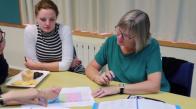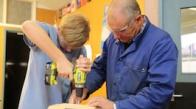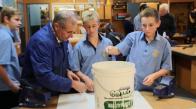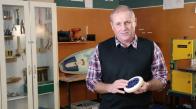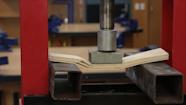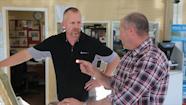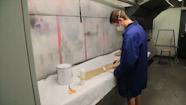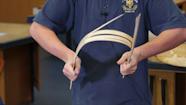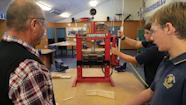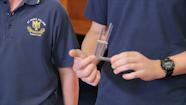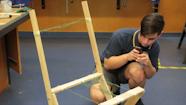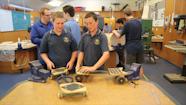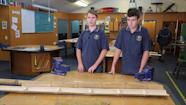Margaret van Meeuwen explains how a cycle of self-review has enhanced delivery of curriculum.
Review of curriculum implementation
Transcript
Margaret van Meeuwen: We’ve put in place a cycle of self-review across our whole campus, so that’s both curriculum initiatives, pastoral care initiatives, business initiatives, all of those things. But we think it’s a good idea for us to annually look at things but also in a four-year cycle to look at things like the delivery of curriculum.
Obviously it’s not possible to do all those in one year, so that’s why we split them out across the four. So what we do in that instance is to bring in an external reviewer. We think it’s good to have someone who actually sits outside of the school, but (has) some of the expertise in that curriculum area. And that gives us a chance to look at our processes up against our curriculum documents, our policies and procedures, and see how that spells out into classrooms. In many cases we’ve had some quite insightful things come through, things that we probably wouldn’t have realised if we hadn’t had someone externally coming into the classroom.
It’s actually also given, I think, the staff in those faculties who, a real impetus to look quite critically at their own delivery of the curriculum themselves. It wasn’t actually designed to do that, it was really just to give us some checks and balances on that cycle, but I think people as they are, if someone's going to come look at them, I think they look quite closely at their practice at that time. So, that’s been done in quite a safe way so that people feel it’s not critically personally, but it’s actually allowing them as a whole faculty to review what they’re doing, how they’re doing it, and improve, and that’s what it’s all about.
I think what’s been absolutely fantastic in the last few years in technology is how much they’ve involved the girls in real-world context. Inviting in experts across food, fabric, and product so that they can actually see the value of what they’re doing in a real-world context and in fact, I think developing some connections with people in those contexts that may in fact lead to career or tertiary opportunities. Some of those examples are things like the year nine food girls running the Michael Van de Elzen fast-food truck. Magic seeing those young girls preparing a healthy lunch, which he critiqued and tasted and so on, and then bringing it out into the hall and running a stall to see if people would actually buy it. Seeing if someone actually values it, so they got so much out of it, but I think it showed the great fun and excitement you can have with technology.
Having people who are interested in sustainability and fabric design coming in and talk to the girls about what they’re doing. So they’re not just designing something for an achievement standard, they’re actually thinking how it actually fits in their world, what will be their world, and in the world around them. I think it’s enormously exciting that all of the projects now are in that kind of real-world context. I love going down to the food rooms at around about lunch time to see what they’ve completed and I’m just absolutely amazed at no matter how old or young the girls are they are talking about how this fits into their lives and I can see they probably have quite an impact when they go home when they’re discussing those kind of concepts around the dinner table and I think that’s really exciting for young girls.
One of the things we’re looking at is a consistency of practice across the school, so we want to make sure that our teachers are fantastic and there’s a really high level of their practice. We want to make sure that all staff are at that upper end and one of the things that I think technology can contribute is that they’ve done a lot of work on their technology matrix in the last few years. So looking to see how across a three- or four-year period they might develop aspects of the technology curriculum, so they’re not repeating themselves, as you say in a programme. When we look at our planning we want to make sure that there is a relative consistency of planning documents and material across the school and I think the work that Claire and her team have done at technology will be of quite a lot of assistance to other faculty heads as we embark on that next part of the process.
Related videos
Reviewing programme planning in years 7–13 (03:23)
At Diocesan School planning focuses on technology components for years 7–10, and establishing scholarship potential in year 13....
Combining knowledge and practice (01:58)
Steve Andrew explains how understanding materials is essential for effective technological practice.
Linking hands-on experiences and understandings (03:54)
Hands-on experiences allow the students to see materials understandings in action.
Play, experiment, explore (02:55)
Steve Andrew lets the students see, feel, and play with products to develop their understandings in materials.
Finding materials to meet the specs (02:36)
Steve Andrew shares how students identify material specifications in a brief and then test materials to find those that are suitable....
School–industry relationship cuts both ways (03:36)
Steve Andrew and Terry Rillstone describe the way the relationship between St John's College and The Shop has benefits for them both....
Pushing the boundaries with materials (02:53)
Steve Andrew describes how his senior students have the confidence to select and work with unfamiliar materials.
Exploring unfamiliar materials (02:44)
Year 12 students from St John's College describe what they know about bamboo and how they are applying this knowledge to their projects....
Students and teachers talk about testing materials in year 11.
Manipulating, forming, and transforming
Students in year 10 describe manipulating, forming, and transforming materials.
Evaluating materials for an outcome
Steve Andrew and students talk about using their knowledge to test materials for their projects at year 12.
Year 10 students describe some of the attributes for the snake skates they are developing.
Senior students select their own issues
Year 12 students talk about the issues that they have selected for their projects.

